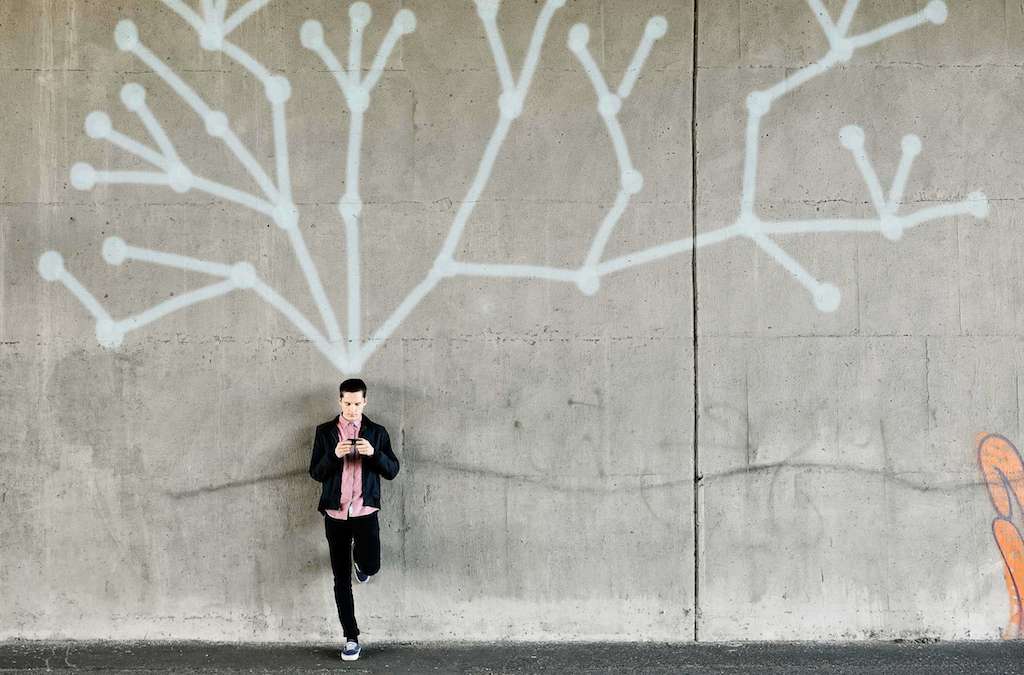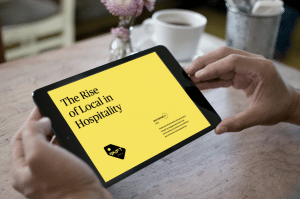Skift Take
Can we get a little common sense about hotel technology around here? Joie de Vivre Hotels seems to think so, with the help of one of the world's most successful design think tanks.
The Epiphany Hotel is set to open in Palo Alto in March just five minutes away from Stanford University. Operated by Joie de Vivre (JDV) Hotels, the 86-room property was gutted to the bones and brought back to life with assiduous attention to how technology and design affects the overall user experience.
In 2011, JDV execs spent three days with IDEO, the Stanford-based global design consultancy recently profiled on 60 Minutes. IDEO’s overarching mission is to design user-friendly, intuitive products that take human behavior into account above all else. The Apple mouse, for example, is their work.
David Kelley, founder of IDEO and Stanford’s d.school product design curriculum, describes his vision as “design empathy.” He studies how humans think and act in a specific scenario first, discovers their pain points, and then works backwards from there to design something that allays those pain points.
Before IDEO and JDV started talking about light switches and sight lines, however, the two teams got chummy. IDEO needed to know who it was dealing with, and JDV wanted to learn how best to open up shop in the tech capital of the country.
“IDEO hosted us and showed us the town in order to catch the essence of Palo Alto and its pioneering spirit,” says GM Lorenz Maurer. “We ate at all of their favorite restaurants from a greasy spoon on the corner to one of the country’s innovators in healthy fast food. They’re a really great partner to work with because their focus is on people first, and then technology and design second.”
From the beginning, while brainstorming priorities about how to integrate the hotel into the community, there was an understanding that The Epiphany was going to host a lot of really smart people.
“At JDV we always want to make sure we create that sense of place around the community we’re in,” says Maurer. “The Epiphany for example is really designed for Palo Alto because we believe people come here to have epiphanies. Be it at Stanford, where the big brains go, or the start up companies who usually hire them.”
For the public work spaces, for example, IDEO recommended ways of rethinking how executives could use the Tinderbox boardroom and Accelerator business center.
Instead of one large table in the boardroom, there’s going to be moveable furniture and a mix of both high-end electronics and traditional tactile business tools. The business center, meanwhile, is centrally located with lots of natural light and a leafy terrace. These are both integrated into the open lobby area also reimagined by IDEO, and both are designed to capitalize on the growing trend of short term meetings for local executives.
“So you have a lot of flexible spaces to express your creativity in many different ways with all kinds of tools, be it analog or digital,” explains Maurer. “It’s about focusing on the right mix of user experiences, and they have to be intuitive.”
That word “intuitive” seems to come up in almost every second sentence when you’re discussing IDEO. This is especially important in the guest rooms. For example, IDEO said absolutely no way should hotels include touch-control dimmers in rooms where people are typically unfamiliar with the layout to begin with. Especially in the dark when you have to pee at 3 a.m., right?
Everyone who’s ever stayed in a hotel room can relate to that.
“We looked at how much technology the hotel really needs, and actually the surprising thing that the IDEO tech guys told us, a lot of hotels have too much technology that is not intuitive,” says Maurer. “Like the room service menu on the TV screen which you scroll through with a remote with 50 buttons, which you only use three of. They said it’s much easier to have a well-printed piece of paper with the menu items right there, rather than over-complicating your life.”
We asked Maurer if that’s a common thing in Palo Alto. Is there a general rethinking in Silicon Valley about how technology impacts overall user experience from a more humanistic point of view?
“Yes definitely, we’re not looking for the most technological solution anymore, but the most intuitive one,” he says. “Good design today is not about the technology, it’s about how people use the technology.”
Greg Oates covers hospitality trends, tourism development and travel brand media. He has toured over 1,000 hotels in 50+ countries. email / twitter
The Daily Newsletter
Our daily coverage of the global travel industry. Written by editors and analysts from across Skift’s brands.
Have a confidential tip for Skift? Get in touch
Tags: california, hotels, Joie de Vivre
Photo credit: How hotel guests relate to technology is more important than the technology Joie de Vivre Hotels

